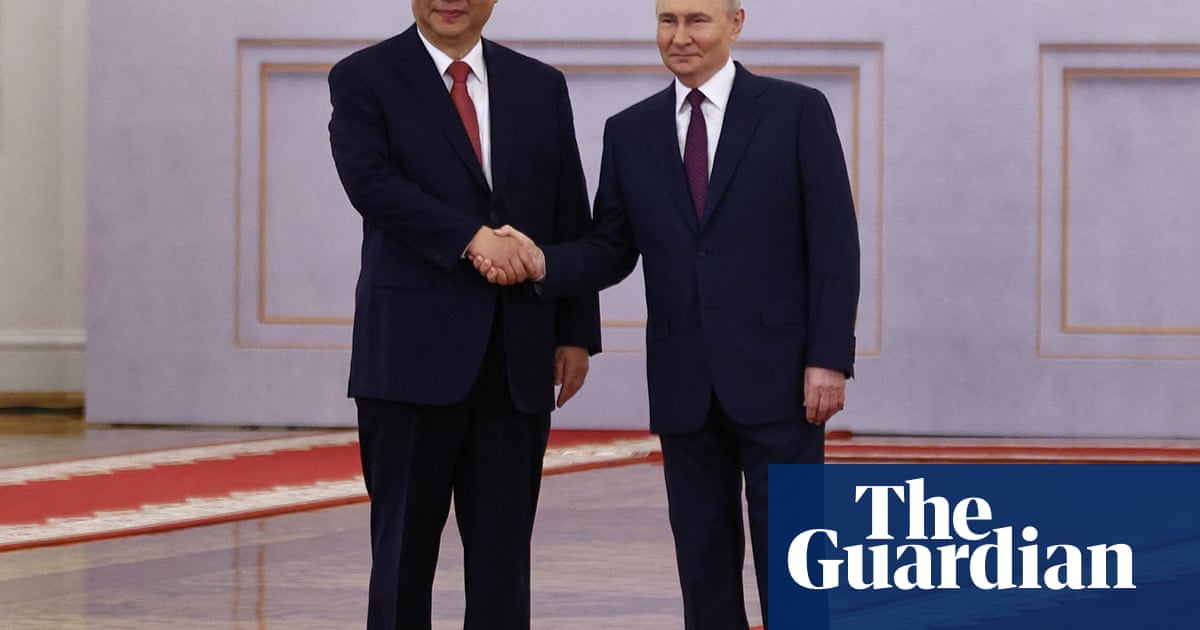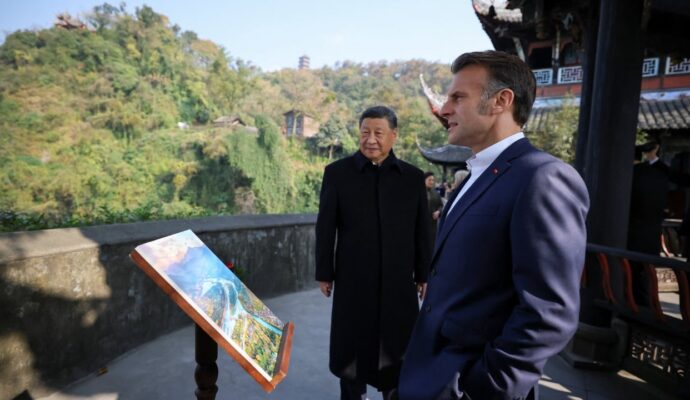
Xi Jinping and Vladimir Putin exchanged warm words in the Kremlin on Thursday during a grand ceremony welcoming the Chinese leader for his 11th visit to Russia.
Xi said the Sino-Russian relationship was “confident, stable and resilient” in the new era and that China was willing to work with Russia to promote a multipolar world.
Putin described his Chinese counterpart as a “dear friend”, while Xi described Putin as his “old friend”.
Xi said: “History and reality have fully proven that the continued development and deepening of China-Russia relations is a natural continuation of the longstanding friendship between our peoples.”
Xi is in Moscow for the 80th anniversary celebrations of the end of the second world war, which is commemorated in Russia as Victory Day on 9 May.
World leaders flying into Moscow for the event faced the threat of disruption from Ukrainian drone attacks, which forced most of the Russian capital’s airports to close on Wednesday. The flight of the Serbian president, Aleksandar Vučić, was rerouted.
Xi, whose plane was escorted by Russian fighter jets, was greeted on Wednesday by a military band playing the national anthems of Russia and China.
A three-day ceasefire declared by Russia to coincide with the celebrations appears to have held, with the Ukrainian air force saying no Russian missiles or drones had been detected in Ukrainian airspace as of 8am local time on Thursday.
Xi is expected to sign several cooperation agreements with Putin during his four-day visit, deepening China and Russia’s already “no limits” friendship.
In an article published in Russian media on Wednesday, Xi said China and Russia had fought side by side in the second world war. “Today, 80 years later, unilateralism, hegemony and bullying are extremely harmful,” Xi wrote. “We must learn from history … [and] resolutely oppose all forms of hegemony and power politics, and jointly create a better future for mankind.”
On Thursday he said the world was facing “unilateralism and acts of hegemonic bullying in the international arena”, a veiled reference to the US-China trade war, in which China has accused the US of coercive behaviour.
Hopes in some Washington circles that the Trump administration might have been able to perform a “reverse Nixon” and persuade Russia to decouple with China by bolstering the US-Russia relationship appear to have failed with Xi and Putin’s declaration that their countries are closer than ever before.
China has been an economic lifeline to Russia during the war in Ukraine, and in recent weeks Kyiv has been increasingly outspoken about what it says is China’s direct aiding of Moscow’s war effort.
The comments from Xi and Putin came a few hours after Lai Ching-te, the president of Taiwan, gave a punchy speech in Taipei calling on European leaders to stand with Taiwan in the face of “a new totalitarian group”, a veiled reference to China and its allies. Lai compared Taiwan’s current predicament to that of European countries before the start of the second world war.
Xi has used this visit to underscore Russia’s support for China’s claims on Taiwan. “Russia has repeatedly reiterated that it adheres to the one-China principle, that Taiwan is an inalienable part of China’s territory, opposes any form of ‘Taiwan independence’, and firmly supports all measures taken by the Chinese government and people to achieve national reunification,” Xi wrote on Wednesday.
Western leaders are increasingly worried that China could launch some form of assault on Taiwan in the next few years, with the war in Ukraine providing a blueprint for how such an attack might play out on the world stage.
Additional research by Lillian Yang
